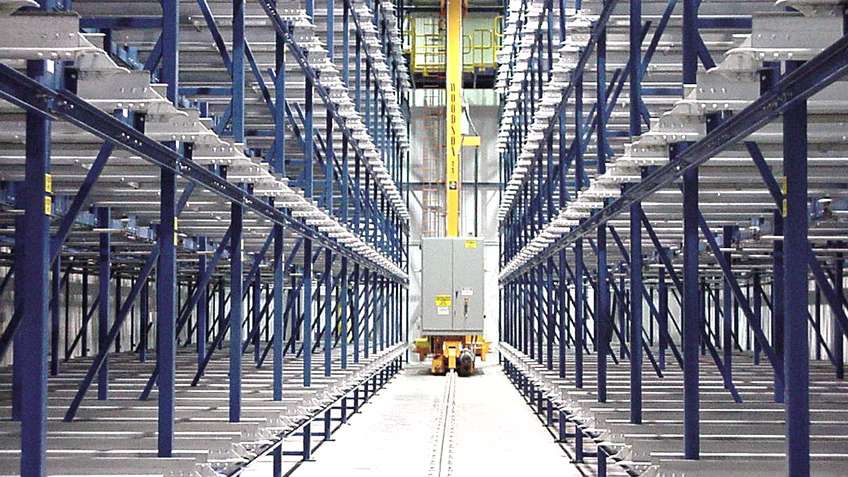Challenge
The distribution center facility contained diverse legacy systems, partly because it changed ownership twice before AstraZeneca bought it in 2007.
In addition, the automation systems were largely siloed. For example, each freezer’s ammonia-based refrigeration system operated independently. “We had eight separate control systems that were loosely connected at best,” explained Jim Heckmanski, senior manager for global automation at AstraZeneca’s Global Operations/Supply Biologics division.
“The components that were networked were on our public business systems, so when IT would do maintenance on the corporate network, we were subject to interference.” The lack of a dedicated, unified production network also restricted operators’ access to critical data, such as freezer temperatures.
Two redundant human machine interfaces (HMIs) were the sole source for operational information about the refrigeration systems.
That limited line of sight and also created safety concerns. “If the site were to ever experience an accidental ammonia release, everyone would have to evacuate the building,” said Gary Bilger, distribution analyst at the MedImmune facility.
“But unless you were standing at one of those terminals, you wouldn’t be able to trace the problem, diagnose it and help direct emergency responders.” Meanwhile, accessing reports about temperature monitoring was cumbersome.
That information was housed on databases that had to be backed up every six months to avoid overloading the system. “We have to be able to pull that information quickly, especially in case of an FDA audit,” Bilger said.
“We needed a solution to make that data more accessible and easy to interpret.” As an FDA-licensed and regulated facility, the distribution center also required an automated solution that would segregate good manufacturing practice (GMP) from non-GMP data.
To further comply with FDA regulations, pharmaceutical operations need reliable equipment and readily available spare parts.
But with so much dated hardware from so many vendors, complying with those requirements posed a growing challenge for the Louisville facility. “We needed a state-of-the-art automation strategy to combine our automation islands on a unified common platform,” Heckmanski said.
“With plans for the possible addition of another refrigeration system at the Louisville site, MedImmune also needed a robust, expandable infrastructure that could effectively handle the future process needs of the facility.”
Solution
MedImmune selected the PlantPAx® distributed control system from Rockwell Automation – a scalable, plantwide control system – to gain fully integrated control over the Louisville center’s distribution operations.
The project was implemented in phases to minimize downtime to the two freezers. MedImmune partnered with Stone Technologies – a Solution Partner within the Rockwell Automation PartnerNetwork™ program – to implement phase one of the new system.
That included installation of the facility’s core control infrastructure, a fully redundant, fiber-optic ring backbone enabled with EtherNet/IP™ connectivity.
Deployment of the freezers’ process control network quickly followed, including two new programmable automation controllers for each, and a third dedicated to segregating and archiving GMP data.
All electronic components associated with the two freezers were replaced.

